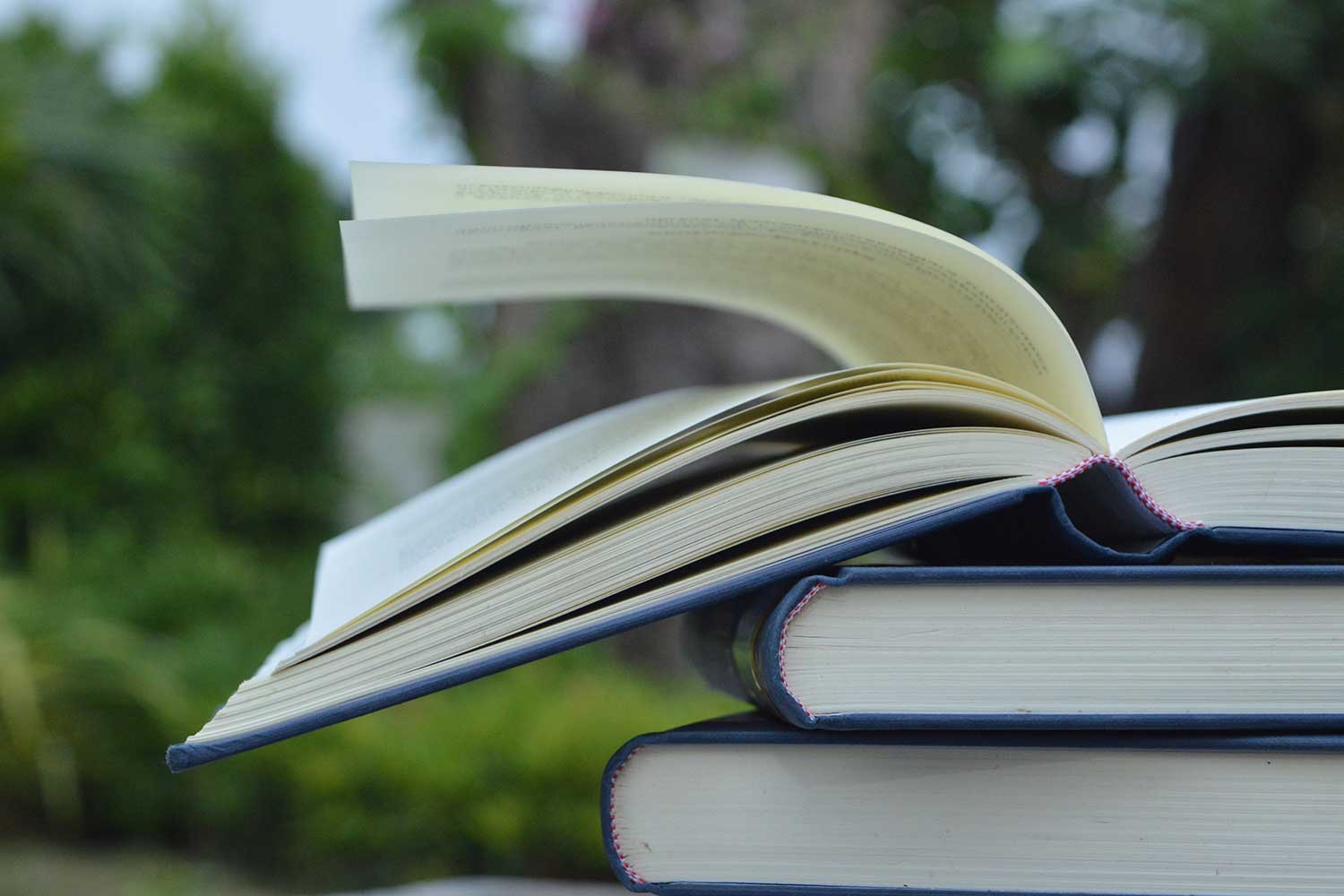It’s just about summertime, which means we all need a little somethin’ to pass hours at the beach, on long (electric) car rides, or while lounging on balconies. If you’re on the hunt for a read that can also lend you a new perspective about your place on this climate-changing planet, you’re in the right spot. Here are our five essential reads for the summer, including titles for both fiction and nonfiction lovers. (Extra credit if you can find ’em at the library or secondhand—or share your copy with a friend or two.)
Want more Earth-saving tips?
SUBSCRIBE to the one5c newsletter here
Not the End of the World by Hannah Ritchie
This one’s a perfect ray of sunshine to ride out a dreary summer storm. The first book from Hannah Ritchie—data scientist and author of the newsletter Sustainability by Numbers—is a lesson in optimistic realism. Called “eye-opening and essential” by Bill Gates, the book is an antidote to our worst climate fear: that nothing we do will be enough. Instead, Ritchie makes the case that, if we zoom out our view, it’s easier to see we’re actually doing some good. Did you know, for example, that carbon impact per person is shrinking compared to that of previous generations? There’s a ways to go, but the hard data shows the doom-and-gloom narrative isn’t the only one with a point.
Troubled Waters by Mary Annaïse Heglar
Climate essayist Mary Annaïse Heglar’s debut novel is based on her family’s experience with social and environmental justice in the American South. The fictional tale weaves ghostly parallels between a granddaughter and grandmother feeling the pressures of a changing world: one struggling with her brother’s death on an oil vessel, and the other revisiting a childhood during the civil rights movement. If you’re looking for something the little ones will enjoy too, look for her first children’s nonfiction book The World Is Ours to Cherish.
Birding to Change the World by Trish O’Kane
Trish O’Kane wasn’t always into birds but found joy and inspiration in feathered friends after Hurricane Katrina destroyed her New Orleans home. Now O’Kane, once a full-time investigative journalist, holds a Ph.D. in environmental studies and lectures at the University of Vermont on the relationships between humans and animals—and how understanding that can actually ruffle up social change. Birding to Change the World is a bright and vivid memoir of her journey, each chapter featuring a species whose natural resilience inspired her along the way.
Becoming Earth by Ferris Jabr
We all know that Earth is special, but the debut from New York Times Magazine contributing writer Ferris Jabr takes a deep look at the history that’s made our floating rock different from all the other ones: life. Everything living on this blue marble has slowly but surely been engineering a perfect place to exist, but one life form in particular is on a speed course to upend paradise. (Any guesses which one?) Despite that seemingly foreboding message, Jabr hardly gets grim, emphasizing instead that humans are in the unique position to determine the next chapter of the eternal book of this planet.
The Ministry for the Future by Kim Stanley Robinson
This one isn’t new this year, but it’s essential reading in the growing genre of climate fiction (or “cli-fi.”) Published by bestselling sci-fi author Kim Stanley Robinson in 2020, it isn’t set in some scary distant future or faraway galaxy. It’s right here on Earth—starting next year. The story follows an international group of ministers whose writ is to advocate for the world’s future generations after the planet blows through the goals set by the Paris Agreement. The solutions they uncover, all rooted in existing science, reveal how realistic the path forward can be.

